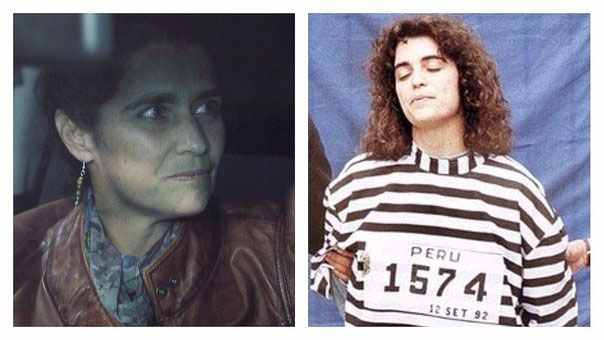LIMA, (Reuters) – A ballet dancer in Peru who was caught hiding the leader of the Shining Path in her apartment in 1992 was freed from prison after finishing her 25-year sentence on Monday.
Maritza Garrido Lecca, 52, emerged from a prison on the dusty outskirts of Lima smiling. As she stepped in a car, journalists shouted: “Do you regret it?”
Garrido Lecca is the latest in a wave of former militants to be freed, and their release has stirred fears of unrest.
Raised in an affluent Catholic home in Peru’s capital Lima, Garrido Lecca stunned Peru when authorities discovered the country’s most wanted man, Abimael Guzman, had been secretly living in the second story of her apartment above the studio where she taught ballet and modern dance.
Her story inspired the 2002 John Malkovich-directed film “The Dancer Upstairs” that depicted the kind of patient detectivework that led to Guzman’s capture.
Guzman launched the Shining Path’s attempt to overthrow the state in 1980 in what would become one of Latin America’s deadliest internal conflicts.
An estimated 69,000 people were killed in the two-decade battle between state security forces and leftist insurgents. The majority of victims were the poor indigenous peasants whom Guzman hoped would embrace his plans for an armed rebellion.
Residents of Lima’s upscale neighborhood Miraflores waved Peruvian flags in protest as they waited for Garrido Lecca to arrive at her elderly mother’s apartment building.
“The Shining Path and terrorism are our enemy and we’ll be vigilant about combating them,” Justice Minister Marisol Perez told journalists ahead of Garrido Lecca’s release.
While the Shining Path is no longer a threat to the Peruvian state and the group’s political arm, Movadef, has been blocked from forming a party, authorities say former members are fanning conflicts and winning support among young people.
Peru’s Interior Minister Carlos Basombrio accused former Shining Path inmates of infiltrating a teachers strike that dragged on for more than two months with frequent clashes between police and protesters.
Out of some 6,000 inmates who had been convicted of terrorism, the “vast majority” are now free, Peruvian security analyst Pedro Yaranga said.
While no former Shining Path member has asked for forgiveness for the group’s violent past, Movadef says it is no longer seeking to obtain power with an armed rebellion.
After her arrest, Garrido Lecca denied being part of Shining Path’s leadership but acknowledged having links to the group and shouted her allegiance to it before news cameras.
Peru’s former Prime Minister Pedro Cateriano, who lives in the building where Garrido Lecca is expected to stay, said Peru has no choice but live with the former rebels.
“I don’t like being Garrido Lecca’s neighbor, either, but, that’s how a state based on the rule of law works,” Cateriano told reporters.






